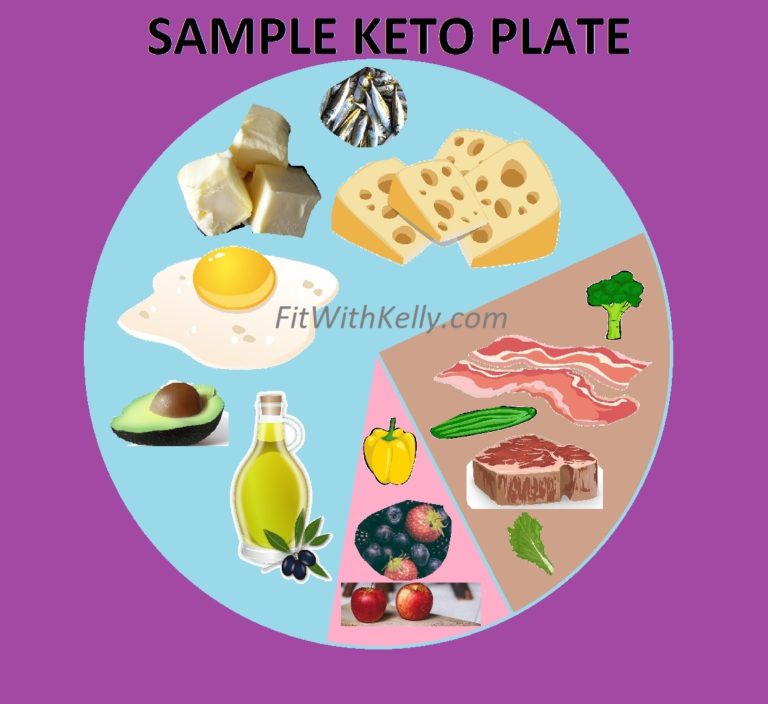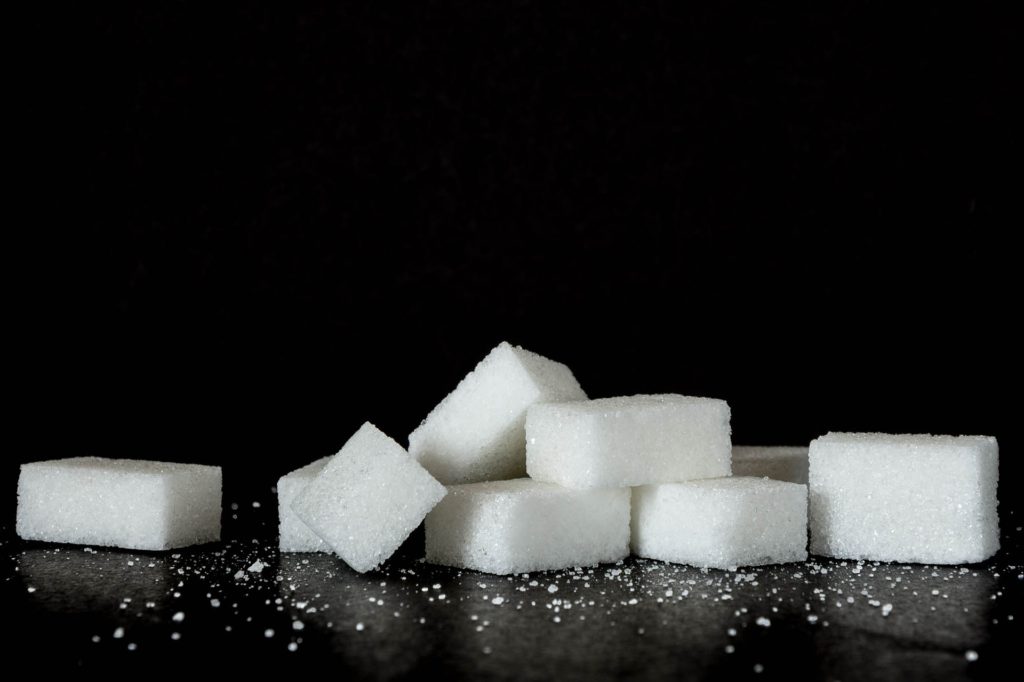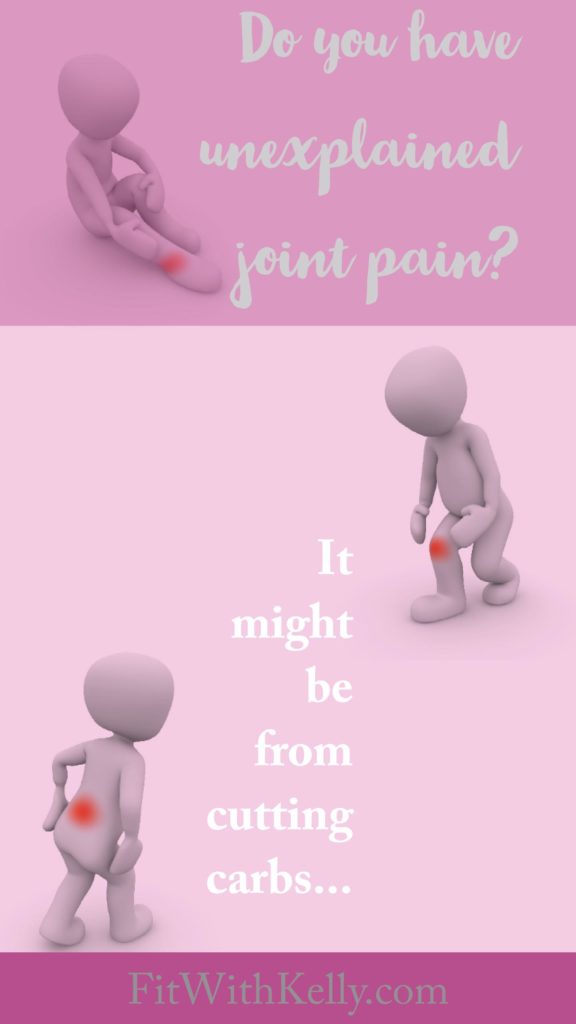Ketogenic Diet: The Good, The Bad, and the Ugly
Written by Kelly Gibson
Introduction: I’ve been in the nutrition field for about six years, after mastering extreme weight loss on a plant-based diet. Not a day goes by that I don’t see ads for foods that I no longer eat – from food delivery services to chain restaurants to supplement companies trying to get me to sell their products. Businesses are constantly piggyback marketing by creating new foods to make the latest diet easier on people by selling custom meals and supplements. If more people knew what I knew about these marketing tactics, they just might stop falling for it. In just the past year I’ve been bombarded with ads and inquiries about the new ketogenic diet. I finally decided to shed light on what this diet is all about including the good, the bad, and the ugly.
The Keto Plate: The keto diet first came about in the early 1900s (1) but didn’t become a “thing” for quite some time. It’s been gaining popularity for quick fat loss recently, and even for cancer treatment. The ketogenic diet specifically aims for a macronutrient profile of 5-10% of calories from carbohydrates, 60-75% calories from fat, and 15-30% calories from protein. A lot of keto dieters aim for 30 grams or less of carbs, as a general rule of thumb; eat one banana and you’ve exceeding your carb limit for the day! The good thing about the keto diet is protein intake is moderate and people don’t have to stress over counting calories. Unfortunately, they need to achieve out-of-the-ordinary low-carb and high-fat goals in order to master the keto diet. This diet is primarily comprised of meat, eggs, oils, animal fats (like lard, tallow, bacon grease, and goose fat) in addition to full-fat dairy products (like mayo, butter, and heavy cream).

The Good: The main purpose of going keto is for the body to raise ketone levels and enter a state of ketosis. Ketones are – in simple terms – an alternative energy source to glucose, which our brain and body primarily functions on. Ketosis can happen when you take a break from eating carbohydrates and build up ketone levels. In ketosis, your body switches from carbs to fat for fuel, allowing it to perform key functions in the brain and body (Berardi 65). Some research suggests that ketones burn fat faster than glucose, which is why there is so much hype about this diet. A good thing about this low-carb diet is that people have no choice but to avoid processed sugar. Common benefits people have reported from going keto is lower triglycerides, more energy, and reduced seizure activity (3).

Sample keto dessert: gelatin gummy bears with artificial sweetener
The Bad: Even a little bite of fruit or dessert could throw you over your carb goal for the day, and kick you out of ketosis. Unfortunately, people resort to low-calorie sweeteners or even artificial sweeteners if they really want to treat themselves. Even though there are no carbs in sugar-free treats, artificial sweeteners can create an insulin response, increasing appetite and causing weight gain (5). Negative side effects that some keto dieters report is mood disturbance, fatigue, and lower motivation to exercise (4). This, in and of itself is counterproductive to weight loss and could be a sign of malnutrition.
The Ugly: You’ll be shocked at what you find out about the ketogenic diet… Go to the next page to reveal how ugly this diet can be.

- Mandal, Ananya. “History of the Ketogenic Diet.” News Medical, Jan 12 2015. https://www.news-medical.net/health/History-of-the-Ketogenic-Diet.aspx. Accessed July 16, 2018.
- Berardi, John et al. Precision Nutrition: The Essentials of Sport and Exercise Nutrition, Second Edition. Precision Nutrition, Inc., 2012.
- Kossoff, Eric. “Ketogenic Diet.” Epilepsy Foundation, Oct 2017. https://www.epilepsy.com/learn/treating-seizures-and-epilepsy/dietary-therapies/ketogenic-diet. Accessed July 17, 2018.
-
White, A. M., Johnston, C. S., Swan, P. D., Tjonn, S. L., & Sears, B. (2007). “Blood Ketones Are Directly Related to Fatigue and Perceived Effort during Exercise in Overweight Adults Adhering to Low-Carbohydrate Diets for Weight Loss: A Pilot Study.” Journal of the American Dietetic Association, 107(10), 1792-1796. DOI: 10.1016/j.jada.2007.07.009. https://asu.pure.elsevier.com/en/publications/blood-ketones-are-directly-related-to-fatigue-and-perceived-effor. Accessed July 17, 2018.
- Yang, Qing. “Gain weight by “going diet?” Artificial sweeteners and the neurobiology of sugar cravings.” Neuroscience 2010. Yale J Biol Med. 2010 Jun; 83(2): 101–108. Accessed July 18 2018. https://www.ncbi.nlm.nih.gov/pmc/articles/PMC2892765/




